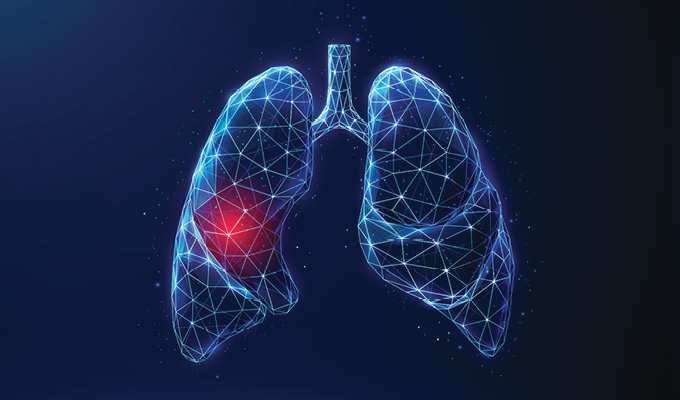Dr. Gurion Rivkin is the head of the Joint Replacement Unit and Orthopedic Department at Hadassah hospital.
Born in Israel, Dr. Rivkin attended Hadassah-Hebrew University School of Medicine and was a resident at Hadassah hospital where he specialized in orthopedic surgery. He had a fellowship in Adult Reconstructive Surgery at the Orthopedic department of the Cleveland Clinic Foundation in Cleveland, Ohio. In addition, Dr. Rivkin has been an instructor and lecturer in orthopedic surgery at the Hadassah-Hebrew University School of Medicine.
His current research focuses on robotic knee replacement.
The success rate for knee replacement surgeries hovers around 85%, which seems relatively high, but for Dr. Gurion Rivkin and his colleagues at Hadassah Hospital, that number is just not enough. "That leaves 15% of patients unhappy," Rivkin explained in the new episode of the "Hadassah on Call" podcast. "When you have that kind of percentage on a surgery that is performed on millions of patients around the world, that’s a big problem. And that's why we're always looking for ways to improve our results."
Enter the ROSA, a robot that improves those patient success statistics. Hadassah was the first hospital in Israel to use the assistive device in 2020. The ROSA allows surgeons like Dr. Rivkin to be more precise in where they make their incisions. "Using the ROSA lets you be more personalized and specific to the patients you’re treating," he said.
The ROSA is just one of many topics covered in our wide-ranging conversation about joint care, including that people can actually get two knee replacements at the same time. One of Dr. Rivkin’s most memorable patients was a 93-year-old who had a double knee replacement. "We had to coordinate the dates of the surgery to correspond with the university timetable, because he was finishing his sixth degree. It just shows you that age is just a number. That guy was amazing."
Dr. Rivkin also talked about a preconceived notion that knee replacements have an expiration date. "The usual myth is that the longevity of hip and knee replacement is somewhere between 10 and 15 years," he said. "And I see many patients come to my clinic with perfectly good functioning prosthesis, 15 years after the surgery and they're terrified. They're sure that they'll come into my clinic and I'll refer them to revision surgery. What we call a redo of the joint. But the truth is most implants will perform well for decades."
In the second part of the episode, we pivoted to talk about hip replacements, which have a much higher success rate — 97% — no matter the age of the patient. Asked if patients can expect to return to normal activities, Dr. Rivkin replied with a smile. "Actually, we want them to do better than they were before," he said, adding that he has a patient who forgot which one of his hips is real and which is prosthetic.
While the coronavirus didn’t directly impact the joints of his patients, Dr. Rivkin did find an adverse effect. "Many active, older patients were suddenly confined to their homes for long periods of time with lack of exercise during the lockdown. And when the lockdown was finally lifted, they found that their knees and hips were not functioning as well as they did before. That's a common complaint. They were better before the Corona and now they're worse, even if they didn't contract Corona."
What else you’ll hear in this episode:
- How women are more susceptible than men to knee issues
- Why a hip issue can be misdiagnosed and what the real cause might be
Further learning:
- Deluged by pandemic needs, Israeli doctors get help from unlikely source: robots
- First in Israel: Hadassah Hospital surgeons insert a knee cartilage-regrowing implant
- Hadassah Hospital’s joint replacement and reconstruction clinic
“Hadassah On Call: New Frontiers in Medicine” is a production of Hadassah, The Women's Zionist Organization of America. Hadassah enhances the health of people around the world through medical education, care and research innovations at the Hadassah Medical Organization. For more information on the latest advances in medicine please head over to hadassah.org.
Subscribe to our podcast on iTunes, Google Play, or your favorite podcast app. If you haven't already, please leave us a review on the iTunes store. It only takes a minute and when you do it helps others discover "Hadassah on Call."
The show is hosted by Benyamin Cohen produced by the team at the Hadassah offices in both New York and Israel.
Read a transcript of this episode.
This episode includes a promotion for:
Our recent episode about diabetes care at Hadassah Hospital:
If you're enjoying this episode, you'll want to check out our previous conversation with professor Avivit Cahn, an expert in diabetes. We covered a lot of topics, including the future of diabetes treatment. “I think the main focus of diabetes research is what we call precision medicine or personalized care,” Professor Cahn said. "You could tailor the treatment much more specifically because now we're sort of giving people more or less the same medication. And it's not really the way it should be done. You have this one-way algorithm for everybody, but people are so different." You can find that episode of "Hadassah On Call" on Apple Podcast, Google Play, or wherever you get your podcast, or on the web at hadassah.org/hadassahoncall, or wherever you get your podcast.
Hadassah's upcoming 100th convention:
If you're a fan of this podcast, we have an opportunity for you to meet the doctors you've heard on the show at an upcoming event. Hadassah is hosting its 100th national convention in Jerusalem this November. You can join other friends of Hadassah to get a behind-the-scenes look at the cutting-edge research being done at our hospital. Plus, we'll have special guided tours around Israel to explore the country's art, history, and, of course, food. Get more information and register for your spot at www.hadassah.org/100convention.



.svg)


